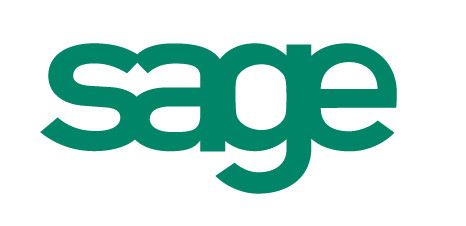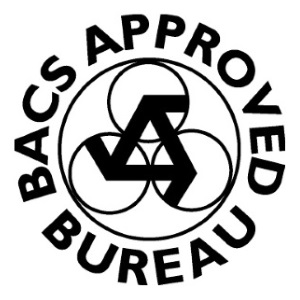Insolvency Solutions for Hospitality
The hospitality sector is a vital part of the UK economy, but it is also highly vulnerable to financial instability. Economic downturns, seasonal fluctuations, rising operational costs, and external factors such as the COVID-19 pandemic have all contributed to financial distress for many hospitality businesses. When a restaurant, hotel, or bar faces insolvency, understanding the process and available options is crucial for directors, creditors and employees.
At Bennett Verby Corporate Recovery, we specialise in helping businesses in financial distress find the best path forward. Whether through turnaround, administration or liquidation, we provide expert guidance tailored to the hospitality sector.
Understanding Insolvency in the Hospitality Industry
A business is considered insolvent when it can no longer meet its financial obligations, either because its debts exceed its assets or because it cannot pay its bills as they fall due. Hospitality businesses often struggle with cash flow due to:
- Seasonal revenue fluctuations affecting income stability.
- Rising rent, utility, and supply costs squeezing profit margins.
- Labour shortages and increased wage costs.
- High debt levels from loans, supplier credit, and tax obligations.
- Customer demand volatility caused by economic conditions or external events.
When insolvency looms, business owners and directors must act swiftly to comply with legal obligations and explore available solutions.
Types of Insolvency Procedures in Hospitality
1. Administration
Administration is a formal insolvency procedure that provides legal protection from creditor actions while an Administrator attempts to rescue the business or maximise returns for creditors.
How It Affects Hospitality Businesses:
- Hotels and restaurants may continue trading while restructuring occurs.
- Employment contracts can be preserved, preventing immediate job losses.
- Unprofitable locations or services may be closed to cut costs.
- Suppliers and landlords may renegotiate terms to support business survival.
If Administration fails to secure recovery, the company may move into liquidation.
2. Company Voluntary Arrangement (CVA)
A CVA allows an insolvent business to reach an agreement with creditors to repay debts over an extended period while continuing to trade.
Benefits for Hospitality Businesses:
- Enables restaurants, hotels, and pubs to restructure operations.
- Reduces pressure from creditors while payments are reorganised.
- Allows directors to retain control of the business.
CVAs are a viable option for businesses with strong fundamentals but short-term cash flow challenges.
3. Creditors’ Voluntary Liquidation (CVL)
If a hospitality business is no longer viable, directors may opt for a CVL, voluntarily closing the company and selling its assets to repay creditors.
Key Aspects of CVL:
- Directors appoint an insolvency practitioner to manage the process.
- Business assets (e.g., kitchen equipment, furniture, premises leases) are sold.
- Outstanding debts are settled where possible.
- Employees may be eligible for redundancy payments from the government.
4. Compulsory Liquidation
Compulsory liquidation occurs when creditors petition the court to wind up the company due to unpaid debts. This can have severe consequences for directors, including potential disqualification.
Impact of Insolvency on Hospitality Businesses
Effect on Employees
The hospitality industry employs thousands of workers across hotels, pubs, restaurants, and event venues. Insolvency can lead to job losses, though some roles may be protected during Administration or CVAs.
Employees may be entitled to redundancy pay and outstanding wages through the Redundancy Payments Service (RPS) if the company is unable to pay them directly.
Effect on Suppliers and Creditors
Suppliers often extend credit terms to hospitality businesses, making them particularly vulnerable when a company becomes insolvent. During insolvency:
- Suppliers may receive partial repayment or lose unpaid invoices.
- Lease agreements may be terminated, affecting landlords.
- Utility providers may cut services if debts remain unpaid.
Effect on Customers
Customers may lose deposits for hotel bookings, events, or prepaid restaurant services if a business enters liquidation. In some cases, Administrators may arrange for bookings to be honoured or transferred.
Directors’ Responsibilities During Insolvency
Hospitality business directors must fulfil their legal duties to avoid personal liability and potential penalties:
- Avoid wrongful trading – Continuing to operate when insolvency is inevitable can result in personal responsibility for company debts.
- Act in creditors’ best interests – Once insolvency is apparent, decisions must prioritise creditor repayments over shareholders.
- Maintain accurate financial records – Failing to do so can result in allegations of mismanagement or fraud.
- Seek professional advice early – Taking proactive steps can open up more options for business rescue or controlled closure.
Preventing Insolvency in the Hospitality Sector
While some financial challenges are unavoidable, hospitality businesses can take measures to mitigate insolvency risks:
- Monitor cash flow regularly to ensure liquidity.
- Negotiate better terms with suppliers and landlords to manage costs.
- Diversify revenue streams, such as offering takeaway services or expanding event hosting.
- Control operational costs, including reviewing staffing levels and energy expenses.
- Seek expert financial advice when early signs of distress emerge.
How Bennett Verby Corporate Recovery Can Help
At Bennett Verby Corporate Recovery, we understand the unique challenges faced by hospitality businesses. Our expert insolvency practitioners provide tailored solutions, including:
- Business restructuring and turnaround strategies.
- Negotiating with creditors to reduce debt pressure.
- Assisting with CVAs, Administration, and liquidation processes.
- Guiding directors through their legal responsibilities.
If your hospitality business is struggling with financial distress, don’t wait. Contact us today for expert advice and practical solutions to protect your business and its stakeholders.












